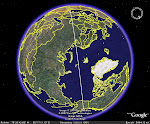Tell of [God's Victory], you who ride on white donkeys, you who sit on rich carpets, and you who walk by the way. To the sound of musicians at the watering places, there they will repeat the triumphs of the Lord, the triumphs of his peasantry in Israel.
A little known but true bit of Biblical history is that most Biblical experts believe the two oldest parts of the Hebrew Scriptures are about women - here, in what is called the "Song of Deborah," and the "Song of Miriam" in Exodus 15.21. Some believe the Song of Miriam may actually be the reporting of an eyewitness to the event. In both, the women and their [presumably] female companions are leading the people [including the men] in praise of God for deliverance, in Miriam's case from the Egyptian Army at the Sea of Reeds and, in Deborah's case, from the Canaanite Army led by General Sisera.
Both Miriam and Deborah are described as "prophets."
So, if these are women are prophets, what "forth-telling" message have they? This oldest of the old forth-telling is the same for both - our victories, be they battles of war or walking to Jerusalem, are from God, not from us, or from riches [one had to be pretty wealthy to own a rare white donkey or to sit on rich carpets].
Much, much later, the [probably] male Psalmist echoes this forth-telling in the opening to another Song of Praise:
Non nobis, Domine, non nobis, sed nomine tua da gloriam!
"Not to us, O Lord, not to us, but the glory is given to Your Power [Name]!"
Thursday, January 17, 2008
Subscribe to:
Post Comments (Atom)


No comments:
Post a Comment